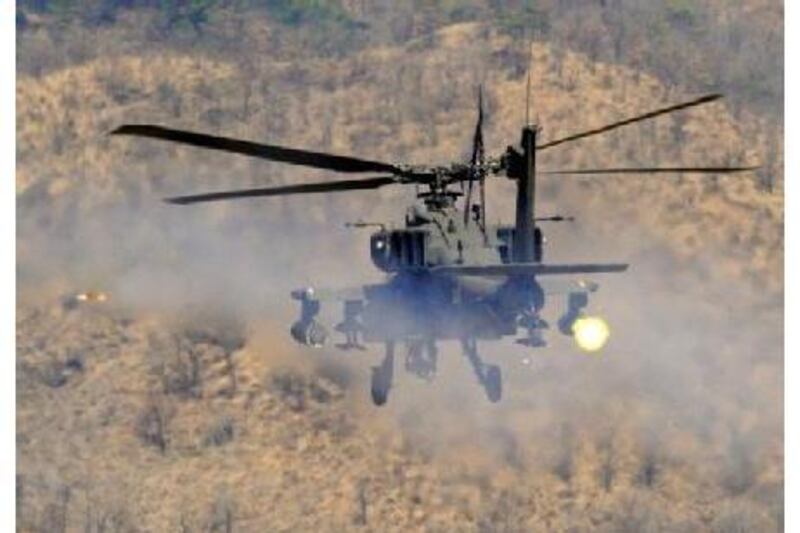WASHINGTON // A US government investigation has questioned the manner in which arms sales to six Gulf countries were authorised over a period of five years.
A report made available to The National yesterday by the Government Accountability Office (GAO), the investigative arm of Congress, found that the US government cleared US$22 billion (Dh81bn) in arms sales to Saudi Arabia, the UAE, Oman, Qatar, Kuwait and Bahrain from 2005 to 2009 but that there were discrepancies in the review process and gaps in the way the United States tracks and evaluates such sales.
The report expressed concern that not enough attention was paid to potential consequences for US strategic interests. That is potentially significant because Congress is notified of arms sales and can, in theory, block them if questions are raised. "As arms transfer authorisations increase to this part of the world, the US government needs to ensure that it reviews requests" for their effect on US strategic interests, the GAO concluded. "The partial absence of documentation of agencies' reviews, however, raises concerns that US priorities are not consistently considered before such sales are authorised."
However, the authors also say that US officials interviewed for the report stated that arms transfers to the Gulf region were "an effective tool to advance US foreign policy and national security goals". The report was commissioned in 2008 by three Republican politicians who voiced concerns "regarding the integration of these programmes with broad US policy objectives in the region", and their implementation in some recipient countries, without giving details.
The report found that long-term security co-operation in the Gulf has been a slow process and that the Gulf Security Dialogue "has not succeeded in enabling multilateral co-operation among Gulf countries because these countries prefer bilateral discussions" with the United States on security issues. The Gulf Security Dialogue is the principal security co-ordination mechanism between the United States and the six GCC countries.
Investigators also were unable to pin down an exact value for arms transfers to the region during the period under review because of discrepancies in accounting practices. The report concluded that arms sales to the region should be more transparent and better accounted for. Among the considerations required by US federal law for arms transfers to the region are the capacity of the US defence industry, the US pledge to maintain Israel's military edge in the region, protection of human rights and the safeguarding of sensitive technologies.
The authors, headed by the Republican Ileana Ros-Lehtinen of Florida, a ranking member of the House foreign relations committee, also recommended that the US state and defence departments document assessments of the effects arms sales would have on US strategic interests. The State Department, in a written response accompanying the GAO report, agreed its process could be improved, but disagreed that the gaps posed any risk, saying appropriate evaluations are conducted. The Pentagon agreed to do a better job of documenting reviews.





